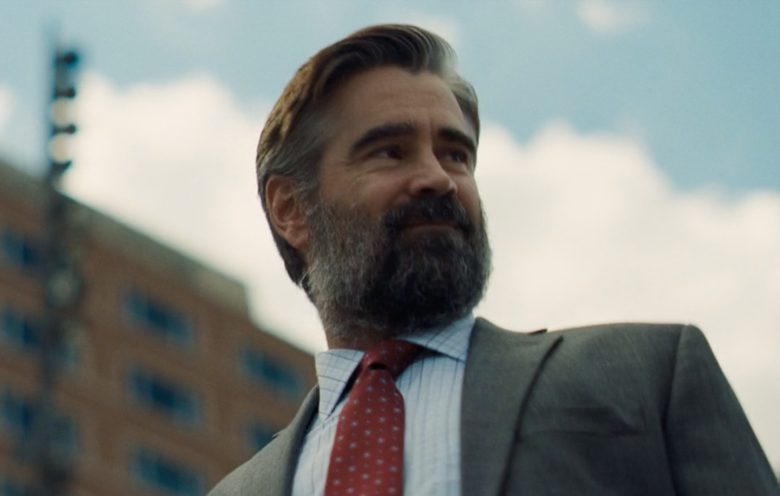At Cameo Cinema from Fri 3 Nov 2017
That The Killing of a Sacred Deer lurks in the territory of horror isn’t initially obvious. For those familiar with the singular, idiosyncratic work of Yorgos Lanthimos, the Greek auteur comes across as dwelling in a cinematic hinterland of Buñuel, Lynch and Haneke. Lanthimos mines the deepest discomfort from his audience, while drawing the most incredulous and scandalised laughter. With his modern take of an Ancient Greek myth he’s deliberately at his most oblique the closer he probes at the mainstream.
Heart surgeon Steven (Colin Farrell) appears to have it all: a glamorous wife Anna (Nicole Kidman), and two kids Kim (Raffey Cassidy) and Bob (Sunny Suljic). However, something’s a little bit off. Their mannerisms are polite to the point of stiltedness, yet often spill over into being inappropriate, such as when Steven tells a friend at a party that Kim has started menstruating the previous week. He also spends a suspicious amount of time with Martin (Barry Keoghan), a somewhat unnerving teenage boy. The reasons for this are slowly revealed, particularly when Steven’s children are stricken with a mysterious ailment that strips them of the use of their legs.
Lanthimos has managed to take a myth of real antiquity and weave it into something original, disquieting, and impossible to predict. Farrell continues to shine with a director who can really tap into his strengths and the spiky, brittle chemistry he shared with Kidman in The Beguiled shines through again here. Kidman once more excels in the type of glacial, maternal role she’s made her own in recent years, and is instantly attuned to Lanthimos’ strange, deadpan style. It feels like the culmination of his craft; a strange brew mixing the cult greats mentioned above (the ending in particular feels like a twisted tribute to Haneke’s Funny Games), but with a sensibility that’s as distinctive as his own DNA.
If there is an obvious weakness with the film, it’s that for work that deals with the themes of consequence and responsibility, there are no real-life repercussions for Steven’s actions outside of his immediate family. Although Lanthimos’ previous films like Dogtooth and The Lobster both deal in absurdity, the skewed internal logic of both films work coherently within the universes in which they’re contained. This consistency isn’t there in The Killing of a Sacred Deer as the world in which these heightened events are happening is posited as more or less normal. It is of course a fable, but it feels like there would be severe legal consequences at least.
Overall, despite these minor qualms, The Killing of a Sacred Deer is a brilliant work of psychological horror. It doesn’t quite match the horrendous brilliance of Dogtooth but is up there with the best arthouse chillers of this year like Elle, Raw, and Personal Shopper. Barry Keoghan looks like he’s going to become one of the best character actors of the next few decades.
